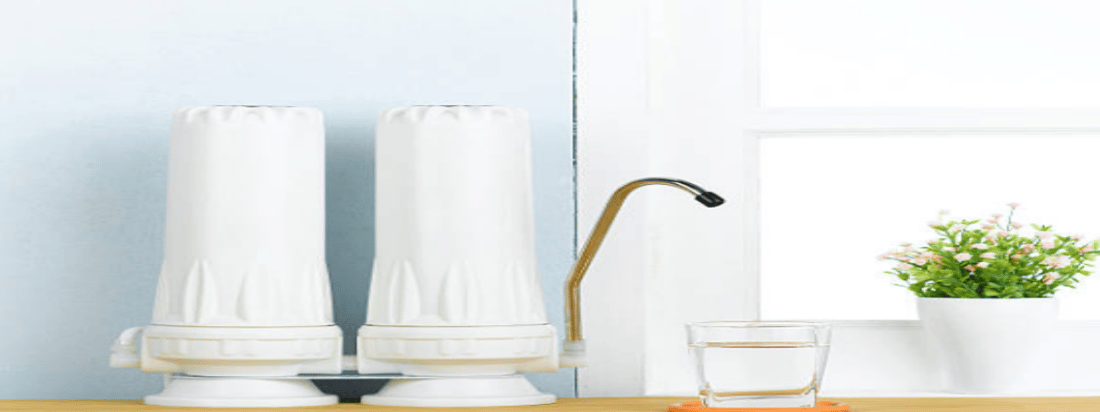Introduction
Water is one of the basic necessities of life, and it has never been more important to ensure that the water you drink is safe and healthy. water purification systems for home can provide you and your family with clean, safe, and great-tasting water. There are various types of water purification systems available, and it is essential to choose the one that suits your needs. In this Ultimate Guide, we will discuss the different aspects of water purification systems for home, their benefits, and how they work.
Types of Water Purification Systems for Home
There are several types of water purification systems that you can install in your home. These include:
- Reverse Osmosis Systems
- Activated Carbon Filters
- Ion Exchange Systems
- UV Filters
- Distillers
Reverse Osmosis Systems
Reverse Osmosis (RO) Systems are one of the most popular types of water purifiers for home use. They work by forcing water through a semi-permeable membrane that removes impurities, such as chlorine, fluoride, arsenic, mercury, lead, and other contaminants. RO systems can also remove bacteria, viruses, and dissolved solids. They are typically installed under the kitchen sink and come with their own faucet for dispensing purified drinking water.
Activated Carbon Filters
Activated carbon filters are another popular type of water purification system for home use. They work by absorbing impurities through a process called adsorption. This process involves the impurities getting stuck to the surface of the carbon, allowing only clean water to flow through. Carbon filters can effectively remove chlorine, volatile organic compounds (VOCs), and sediment, which can improve the taste and smell of water. They are generally installed as a whole-house filter or with a pitcher for drinking water.
Ion Exchange Systems
Ion Exchange systems are suitable for removing dissolved minerals from water, such as magnesium and calcium. This type of filtration system works by exchanging ions from the water with ions of the opposite charge from a resin bed. They are an excellent option for those who have hard water or live in areas with high mineral content.
UV Filters
UV Filters use ultraviolet light to disinfect water by killing bacteria and viruses. Water passes through a chamber where it gets exposed to UV light, which destroys the DNA of microorganisms, making them unable to reproduce. UV filters are typically installed as an additional step in the filtration process for RO or activated carbon filters.
Distillers
Distillation is a process that involves heating water to create steam that is captured and condensed back into water. The impurities are left behind as the steam rises, leaving behind pure water. Distillers are effective in removing minerals, bacteria, viruses, and other chemical contaminants. They are typically installed as a standalone unit and have their own storage container.
Benefits of Home Water Purification Systems
There are many benefits to using a water purification system in your home. These include:
- Improving overall health by providing clean and safe drinking water
- Reducing exposure to harmful chemicals and contaminants
- Improving the taste and smell of water
- Reducing plastic bottle waste
- More economical in the long run than buying bottled water
Water Quality Testing
It is essential to test the water quality in your home regularly. Testing water quality can help determine if there are any contaminants, such as lead, bacteria, or chemicals. You can test your water quality by sending a sample to a certified laboratory for analysis or by using a home test kit. Regular testing can help ensure that your water purification system is working effectively, and your family is drinking clean, safe water.
Factors to Consider When Choosing a Water Purification System for Home
When choosing a water purification system for your home, there are several factors to consider. These include:
- Contaminants in the water
- Water usage and flow rate
- Cost and maintenance
- Type of filtration system required
- Installation and space requirements
Installation and Maintenance
The installation and maintenance of a water purification system are important factors to consider. RO and carbon filters require replacement of filtration cartridges periodically, which typically takes less than an hour. On the other hand, ion exchange systems and distillers require minimal maintenance and do not contain any consumable part. The installation process can range from a few minutes for a countertop unit to several hours for a whole-house system.
Conclusion
Access to clean, safe, and healthy drinking water is essential for the wellbeing of you and your family. Water purification systems for home can help remove impurities, such as contaminants, minerals, and chemicals, that can be harmful to your health. There are several types of water purification systems available in the market, each with its own pros and cons. When choosing a water purification system for your home, it's essential to consider the type of filtration system required, water usage and flow rate, cost and maintenance, and installation requirements.

